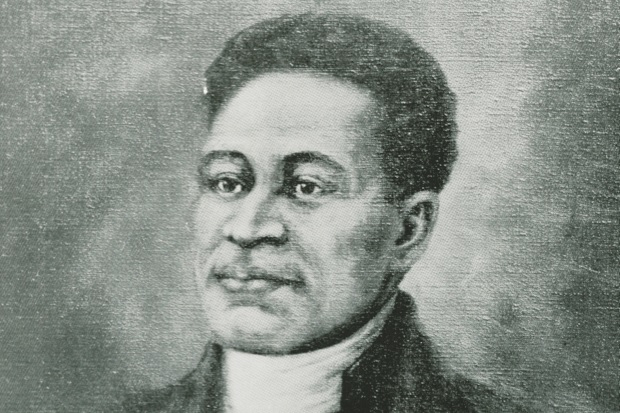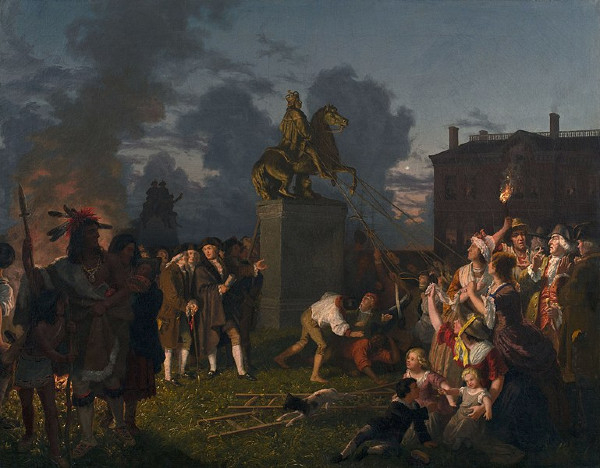Cato
Cato, or Cato Howe was an enslaved courier and Black spy of the American Revolution. Cato's enslaver, Hercules Mulligan, was an Irish-born tailor who immigrated to New York City in 1746, and also happened to be a spy whose activities are quite well-known. Hercules Mulligan gathered intelligence through his personal connections as well as clients at his New York City tailoring shop, and Cato carried the information on horseback under the guise of delivering clothing or packages to Continental Army officers and other revolutionaries, including Alexander Hamilton and George Washington, and often through British-held territory.
Cato's messages are credited with likely saving Washington's life on two occasions. Other than his intelligence activities with Mulligan, little definite information about Cato is available, though an excavation of his home after the war provides historians with more information about his life after the war.
After his service, Cato returned to Plymouth, Massachusetts. In 1792, the town of Plymouth issued a decree stating that whosoever could clear a particular patch of land within three years could claim it. Cato, joined by Prince Goodwin, Plato Turner, and Quamany, took up the challenge and established a small community on their new property, calling it Parting Ways or New Guinea. Cato lived out the rest of his days there with his first wife Althea, who died around 1820, and then his second wife, Lucy Prettison. Cato passed away in 1824 and is buried on the land that he owned in Plymouth.
Name: Cato, Cato Howe
Born: Unknown
Died: 1824
Contributions in the American Revolution: Delivered Hercules Mulligan's intelligence, likely saving Washington's life on two occasions







